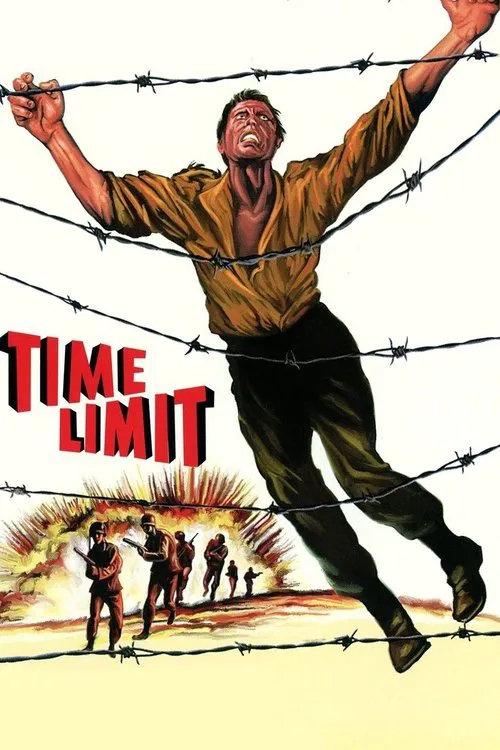Time Limit

Plot
Set during the Korean War, Time Limit is a gripping drama that unfolds in a stark and unforgiving environment. The film's narrative centers around a complex and thought-provoking case involving Major Martin Cargill, a high-ranking officer accused of treason while a prisoner of war. Colonel Harry C. Edwards, a seasoned and meticulous military investigator, is tasked with unraveling the truth behind Cargill's alleged betrayal. As Edwards begins to investigate, he is met with a seemingly straightforward confession from Cargill. The Major readily admits to having surrendered vital information to his North Korean captors, leading to the deaths of many American soldiers. Edwards' superiors, eager to conclude the case and bring Cargill to justice, are quick to accept the Major's admission at face value. However, Edwards is not one to jump to conclusions. Instead, he chooses to delve deeper into the circumstances surrounding Cargill's confession. Through his meticulous questioning, Edwards discovers inconsistencies in Cargill's story. The Major's admission appears to be a hastily conjured up alibi, designed to shift the blame. Edwards is intrigued by the possibility that Cargill may be telling the truth, that he indeed was coerced into revealing vital information to his captors. As the investigation unfolds, Edwards' conviction grows that Cargill is, in fact, innocent. The Colonel is driven by a sense of justice and a desire to uncover the truth, no matter the obstacles in his path. The stark and unforgiving environment of the Korean War serves as a backdrop for Edwards' investigation. The war-torn landscape is a constant reminder of the brutal realities of conflict, where lives are lost in an instant, and the human spirit is tested beyond endurance. Within this unforgiving environment, Edwards' battle for the truth takes on a personal dimension. As he presses on with his investigation, he becomes increasingly isolated from his colleagues and superiors. This sense of isolation serves to heighten the tension, as Edwards' determination to uncover the truth is matched only by his growing sense of uncertainty. Edwards' relationship with the men he interviews is equally compelling. The Colonel's encounters with Cargill, his fellow soldiers, and other key figures all serve to deepen our understanding of the case and its complexities. Each character is well-fleshed out, with rich backstories and motivations that add depth to the narrative. Through his interviews, Edwards is forced to confront the moral complexities of war, where soldiers are often forced to make impossible choices in the face of overwhelming adversity. One of the most striking aspects of Time Limit is its unflinching portrayal of the psychological toll of war. Edwards, a seasoned veteran of the war, is haunted by the memories of lost comrades and the futility of the conflict. His relationships with his fellow soldiers are fraught with tension, as he grapples with the reality of war and the human cost of its brutality. The film's exploration of these themes serves to underscore the human cost of conflict, where soldiers are often reduced to mere statistics in the face of bureaucratic indifference. The film's climax, a tense and emotionally charged confrontation between Edwards and Cargill, serves to underscore the complexity of the case. In the face of overwhelming opposition from his superiors, Edwards finally presents his findings, revealing a conspiracy of silence and cover-up that extends to the highest echelons of military command. The revelation that Cargill is innocent adds an element of poignancy to the narrative, highlighting the devastating consequences of a hasty and misguided decision. As Time Limit reaches its conclusion, the stakes are laid bare. Edwards' investigation, driven by a determination to uncover the truth, has sparked a chain reaction of events that threaten to upend the military hierarchy. In the aftermath of the revelations, Edwards' superiors are forced to reevaluate their stance on the case, and Cargill is finally vindicated. The film ends on a note of catharsis, as the truth finally sees the light of day, and justice is served.
Reviews
Recommendations




